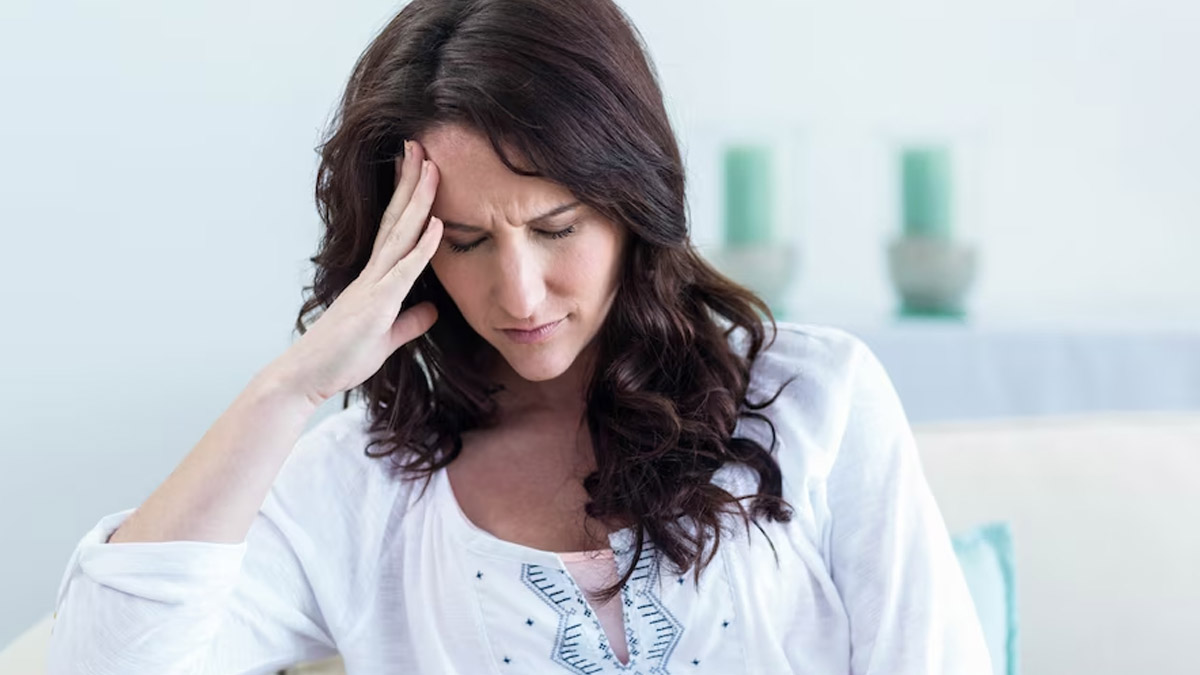
A bad headache can ruin your day. It can make you take frequent breaks from work, strain your relationship with family members and affect your ability to lead a healthy productive life. Headaches can be caused and influenced by many factors both intrinsic and extrinsic, but women often notice and mention a link between headaches and times of hormonal changes, such as periods. We spoke to our expert Dr Mohammed Afzal Siddiqui, Consultant Obstetrician and Gynaecologist, Manipal Hospital, Goa, who explained the connection between headaches and hormones in women.
Table of Content:-
The Impact of Hormones on Women's Headaches

Dr Siddiqui said, “While one-third of the population experiences headaches, women suffer from them more often than men. Headache problems are the most common cause of impairment among women under 50. In childhood, headaches are more common in boys than in girls but once girls reach puberty and their menstrual cycle begins, they experience headaches almost three times more frequently than boys. After menopause, the prevalence of headaches levels off between the sexes.” This pattern suggests a connection to hormones, specifically oestrogen and progesterone.
Role Of Oestrogen and Progesterone
Dr Siddiqui highlighted, “Oestrogen and progesterone are pivotal hormones in a woman's life. Oestrogens are responsible for the development and regulation of the female reproductive system, but they also have multiple other functions as well, including controlling the pain-inducing chemicals in the brain. Oestrogens are primarily produced in the ovaries, with more production occurring during the first half of the menstrual cycle.”
Dr Siddiquie added, “It has been established that headaches, especially migraine headaches, are closely linked to oestrogen levels in the female body. It may even result from a decrease in oestrogen levels. Also, chronic headaches and migraines can be influenced by changes in oestrogen levels. Women with higher oestrogen levels are more prone to headaches, particularly migraines.”
According to the Journal of Headache and Pain, migraines begin after menarche, are more common in the days preceding or following menstruation, and get better in pregnancy and menopause.
Also Read: Managing Headaches At Home: Quick Remedies That Help
Causes of Oestrogen Level Fluctuations

Dr Siddiqui said that various factors can cause fluctuations and drops in oestrogen levels in females, including genetics, age, medications, smoking, and more. However, the most dramatic fluctuations occur during:
- Before menstruation
- During pregnancy
- After giving birth and during lactation
- During perimenopause and menopause
- While taking oral contraceptive pills or undergoing hormone replacement therapy
- After the removal of ovaries through surgery
Dr Siddiqui highlighted, “A decrease in oestrogen levels during these times can lead to headaches, typically in the form of migraines lasting anywhere from 4-72 hours. This explains why headaches are more common, longer-lasting, and frequent in women, particularly during times, such as their menstrual cycle.”
Also Read: Not All Headaches Are Same: Expert Explains About Headaches Originating From Neck
Beyond Hormones: Other Headache Causes and Triggers
Despite the hormonal connection, women are not entirely at the mercy of their hormones or oestrogens alone. Dr Siddiqui added, “Many other causes and triggers for headaches exist, such as anxiety, glare, noise, lack of sleep or physical activity, medications, food sensitivities, and smoking. However, one thing is clear: there is a cause and a reason for these frequent headaches in women.”
Bottomline
Dr Siddiqui concluded, “Headaches are one of the most modifiable disorders and there is no virtue in suffering from pain. If you suffer from frequent headaches affecting your personal and professional life, it's essential to seek proper medical advice and treatment. So, for those who think 'it's all in the head' when a woman complains of a headache, remember that it's you who has it 'all in the head' and not the lady.”
[Disclaimer: The information in this article is shared by a registered healthcare professional and is for informational purposes only. Do not substitute it with professional medical advice. If you experience frequent headaches, consult a healthcare provider for proper diagnosis and treatment.]
Also watch this video
Read Next
Postpartum Depression: Expert Lists Its Symptoms, Risk Factors, And Importance Of Seeking Support
How we keep this article up to date:
We work with experts and keep a close eye on the latest in health and wellness. Whenever there is a new research or helpful information, we update our articles with accurate and useful advice.
Current Version